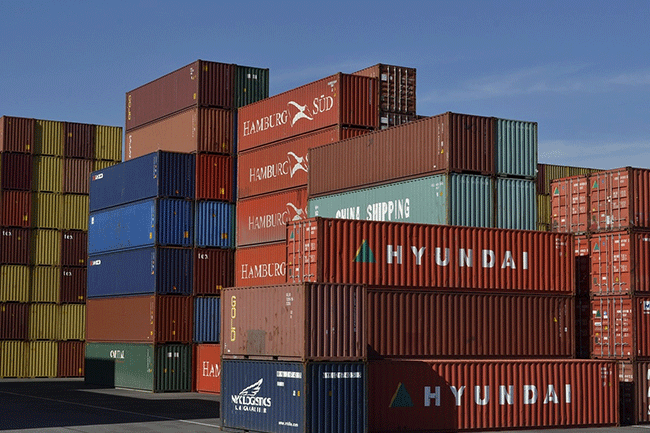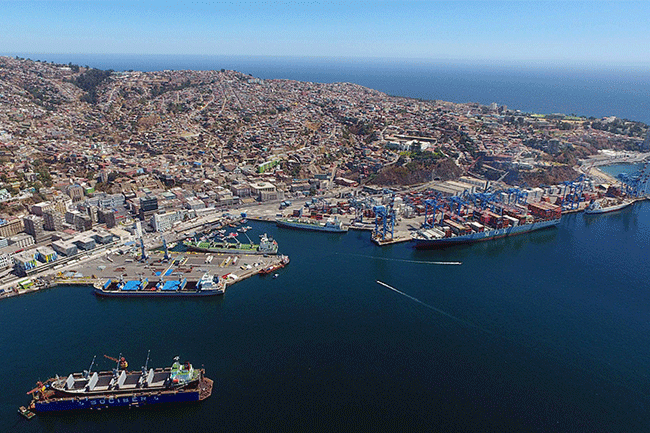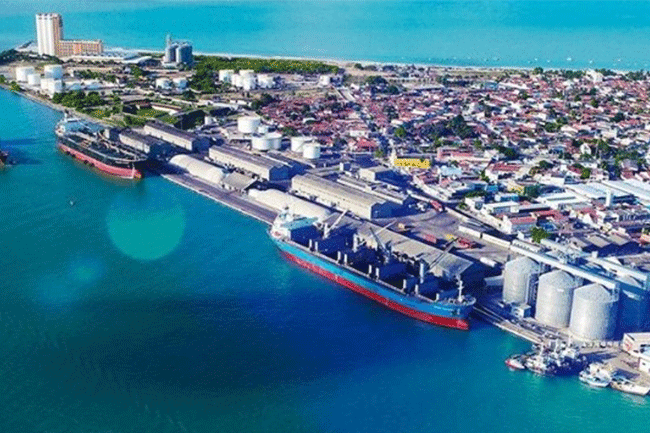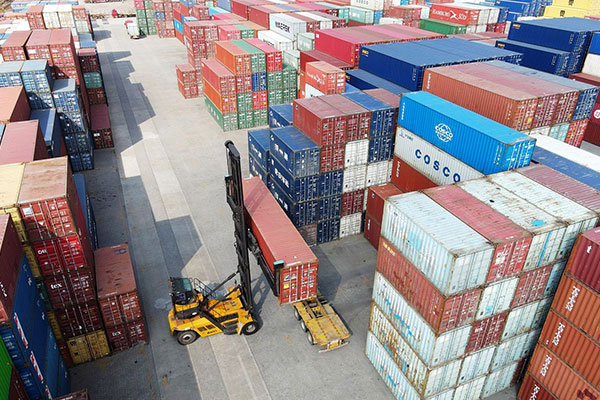- Shanghai Zhongshen International Trading Co., Ltd. – Your reliable partner with 20 years of import/export agency service expertise.

I. The Import Trade Situation and Market Opportunities of Dutch Coffee
As a hub of the European coffee trade, the Netherlands has long held a central position in global coffee transit and distribution, leveraging the global shipping advantages of the Port of Rotterdam and the century-old trading legacy of the Amsterdam Coffee Exchange. According to 2023 Dutch customs data, the country processed over 800,000 tons of coffee annually, serving markets in the European Union, the Middle East, and Asia-Pacific. As the world's second-largest coffee consumer, China imported a total of 123,000 tons of raw and roasted coffee beans in 2022, an increase of 18% year-on-year. Of this total, Dutch-origin coffee accounted for over 25%, with surging demand for niche categories like specialty coffee and organic coffee.
In the current international trade environment, the European Union imposes strict sanitary and phytosanitary (SPS) measures on coffee exports, while China's customs authorities have strengthened the review of imported food access, which has posed challenges for coffee exporters in both regions.Import Agent ServicesThis places higher demands on the processing of documents and compliance capabilities. In addition, after the conflict between Russia and Ukraine, the three parties—China, the Netherlands, and Russia—have been working together to address the challenges brought about by the conflict.Re-export ServicesThe Russian coffee market has seen a rise in demand, with annual consumption exceeding 500,000 tons. The volume of Chinese agency business transiting through the Netherlands has increased significantly.Convert foreign exchange into RMBIt is crucial to coordinate with logistics.
II. Core competencies of import agents: Professional control of documents and logistics
(I) Document Processing: Full-chain review to avoid customs clearance risks
Importing coffee from the Netherlands requires completing all eight core documents: a commercial invoice (which must specify the product specifications and origin), a packing list (indicating the gross/net weight and packaging materials), and so on.Maritime transportBill of lading (B/L; it is recommended to choose the shipping company's B/L, M-B/L, to reduce the risk of cargo ownership), issued by the Dutch authorities.Origin Certificate(For example, the EUR.1 certificate of origin under the EU's Generalized System of Preferences, which entitles to tariff preferences), a health certificate issued by the Dutch Food and Consumer Product Safety Authority (NVWA) (with a signed statement confirming compliance with Chinese import food standards), an ingredient analysis report (key indicators such as caffeine content and impurity rate), a roasting process certificate (for roasted beans, specifying roasting temperature and time), and an insurance policy (mandatory under CIF terms, it is recommended to purchase an "All Risks" policy to cover all transportation risks).
Based on my 20 years of agency experience, common single document issues include: the certificate of origin not indicating "fully obtained", resulting in the loss of tariff preferences; and the health certificate not being issued by an NVWA-authorized agency, leading to its rejection by customs authorities.Zhong Shen International Trade Co., Ltd.Through the three-level review mechanism of "preliminary review - re-check - submission", the average error rate of documents is controlled within 0.3%. We once assisted a client in correcting the missing baking process certificate within 24 hours, avoiding a loss of 200,000 yuan in demurrage fees.
(II) Logistics Management: Multimodal transport and risk control
The import and transportation of Dutch coffee is mainly by sea (accounting for 85%), with the main shipping routes being Rotterdam-Shanghai/Shenzhen, which takes about 30-35 days. For urgent orders, alternative options can be considered.Air freight(Amsterdam-Beijing/Guangzhou), with a transit time of 7-10 days, but the cost is 4-6 times higher than that of sea freight. The choice of transportation mode should be based on the value of the goods (choose sea freight for low-value goods like raw beans, and air freight for high-value goods like premium roasted beans) and the delivery requirements (air freight should be prioritized for orders with festive promotions to ensure timely delivery).
In the design of logistics solutions, special attention should be paid to the odor absorption and moistureproof properties of coffee: sea containers must use food-grade clean containers, and it is recommended to install moistureproof beads (20 packs per 40-foot container). When handling LCL (less-than-container-load) shipments, avoid mixing with odor-producing goods such as chemicals and fragrances. Zhong Shen International Trade has established long-term cooperation with shipping companies like Maersk and MSC, allowing priority booking of temperature-controlled containers (suitable for freshly roasted beans, with a temperature controlled at 18-22°C). Additionally, by adhering to the TIR Convention (International Road Transport Convention), we ensure seamless "door-to-door" land transport connections from Rotterdam to the Chinese border, thereby reducing transit losses.
III. Extension of Business to Russia: Value-added Services Provided by VTB for Foreign Exchange Settlement
In the transit trade between China, the Netherlands, and Russia, the efficiency of foreign exchange settlement directly affects the turnover of funds. Russiaforeign tradeAs one of Russia's largest commercial banks, VTB maintains partial access to the EU's SWIFT system, supports multi-currency conversions between the euro, the ruble, and the RMB, and recognizes Dutch export documents (such as certificates of origin and health certificates). This significantly reduces the risk of customs clearance rejections in Russia.
Zhong Shen International Trade relies on its agency cooperation qualification with VTB to provide clients with a "dual currency locking" foreign exchange settlement solution: Locking the euro-yuan exchange rate (with a fluctuation range of no more than 0.5%) at the time of signing the order, and directly connecting with Russian importers through VTB Moscow Branch to shorten the remittance path (with an average arrival time of 2-3 working days, which is 1-2 days faster than ordinary banks). In 2023, the company assisted a client in completing the transshipment of 500 tons of Dutch coffee to Russia. By settling foreign exchange through VTB, the client saved 32,000 yuan in exchange costs and experienced no delayed payments during the entire process.
IV. Trade Compliance Tips: Certification Requirements and Client Responsibilities
It should be noted that Zhong Shen International Trade does not provide product certification services. However, based on our compliance experience, we advise clients to complete the following certification preparations in advance:
- China Market Access RequirementsDutch coffee producers need to complete the "Registration of Overseas Food Production Enterprises for Imported Food" (FASFC registration) with the General Administration of Customs of China (GACC), and the registration number must be reflected in the health certificate.
- Dutch Export RequirementsIt is necessary to provide a health certificate issued by the NVWA (for processed foods) or a plant quarantine certificate (for raw beans);
- Voluntary certificationFor example, the EU Organic certification, Fair Trade certification, and Kosher certification in the European Union. Although these certifications are not mandatory, they can help increase the product's premium price (organic coffee is typically 30%-50% more expensive than regular coffee).
It is recommended that clients initiate the certification process three months before signing the contract and entrust professional certification agencies (such as SGS and BV) to handle it, to avoid customs clearance delays due to missing certifications (according to statistics, customs clearance delays caused by certification issues average 15 days, resulting in additional storage fees of about 5,000 yuan per day).
V. Full-Process Agency Services: Closed-Loop Management from Consultation to Feedback
Zhong Shen International Trade Co., Ltd. divides the import agency into nine major nodes, providing full-process visualized control:
- Client ConsultationThrough the "Import Demand Survey Form", clarify the coffee categories (raw beans/roasted beans), specifications (Arabica/Robusta), target markets (supermarkets/e-commerce), and assess whether it involves special transportation (such as small packaged pre-packaged products requiring Chinese labels).
- Negotiation and Contract SigningReview the trade terms in the contract (it is recommended to use CIF Shanghai, with the agent controlling the transportation and insurance), payment methods (L/C 90 days is safer than D/P), and quality clauses (specify an acceptance standard of a defect rate of ≤3%);
- Orders & PaymentThrough a bank guarantee (BG) or?L/C?Payment by Letter of Credit (L/C), with the agent assisting in reviewing the soft clauses of the L/C (such as unreasonable clauses like "the Russian party needs to confirm the quality").
- Production supervisionFor raw beans, send staff to conduct on-site spot checks (with a moisture content of ≤12% and an impurity rate of ≤1%); for roasted beans, verify the roasting curve (it is recommended to pack the roasted beans within 48 hours after they are taken out of the roaster);
- Logistics ManagementDevelop a "Transportation Risk Assessment Form", noting that during the typhoon season (July-September), it is necessary to avoid Southeast Asian routes, and during the winter (December-February), it is necessary to take measures to keep containers warm;
- Customs CompliancePre-categorize the HS code (raw beans 0901.11, roasted beans 0901.21), calculate the comprehensive tax rate (most-favored-nation tariff 8% + value-added tax 13%), submit the declaration in advance through the "Single Window" system, and make an appointment for inspection.
- Delivery and DistributionIn cooperation with JD Logistics and SF Express Cold Chain, we have achieved a 24-hour direct delivery from ports to warehouses and stores (targeting the East China market);
- Quality AssuranceAfter arriving at the port, we will cooperate with the Customs Inspection and Quarantine Bureau to complete the sampling and testing (with a focus on detecting aflatoxin B1 at ≤5μg/kg). If any quality issues are found, our agency will assist in initiating international commercial arbitration (we successfully handled one mold contamination claim in 2022, and the claimant received 30% of the value of the goods as compensation).
- Summary FeedbackProvide an "Import Full Process Analysis Report", which includes a cost breakdown (with shipping fees accounting for 22% and customs duties accounting for 18%), time milestones (an average of 45 days from placing an order to delivery), and optimization suggestions (such as applying for AEO certification from the customs to enjoy customs clearance convenience when importing in bulk).
Conclusion: The core value of the Dutch coffee import agent lies in helping clients reduce operational risks by more than 30% and comprehensive costs by 15% through professional document processing, precise logistics control, and in-depth compliance experience. Zhong Shen International Trade Co., Ltd. has been deeply engaged in the field of foreign trade agency for 20 years and has always adhered to the principle of "Making Import Easier", helping clients seize market opportunities in the Dutch coffee industry.
Related recommendations
? 2025. All Rights Reserved.










